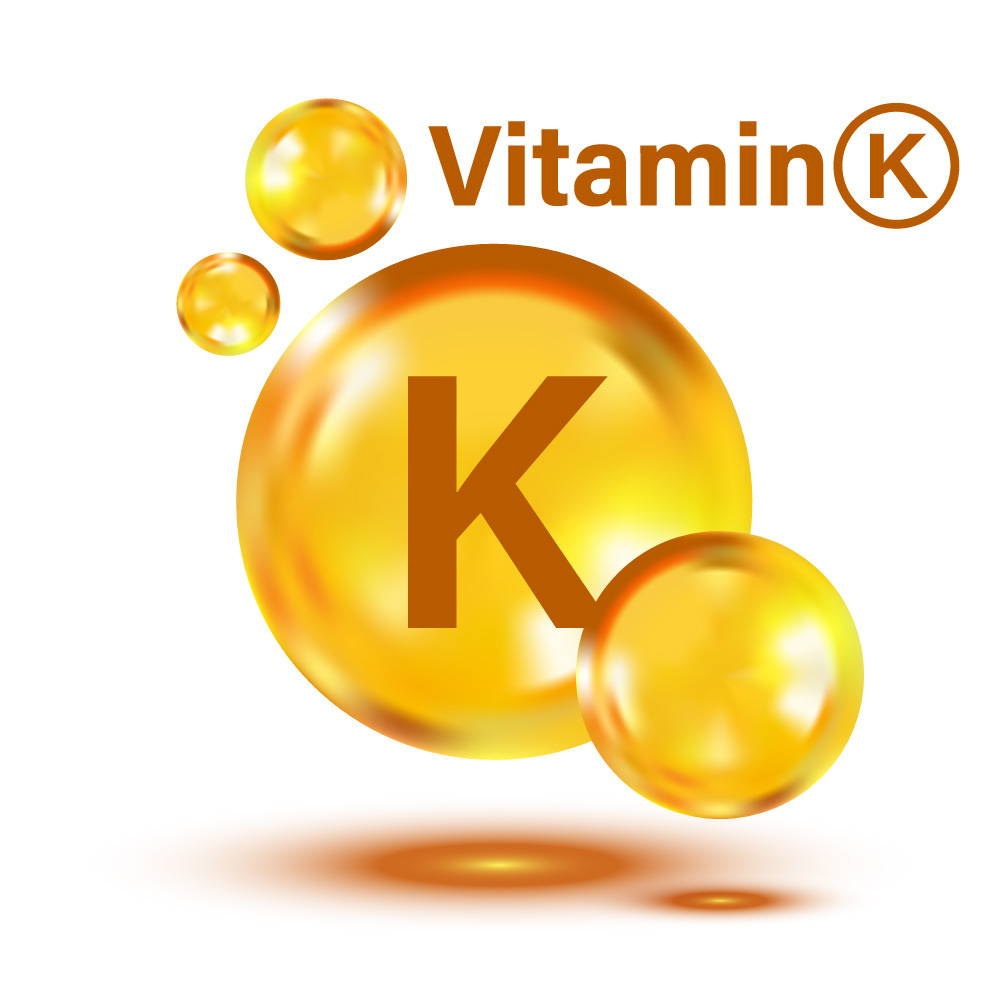SUPPLEMENT - VITAMIN
Explore our effective micro-nutrients and premium ingredients

What is vitamin K and what does it do?
How much vitamin K do I need?
LifeStage | RecommendedAmount |
Birth to 6 months | 2.0 mcg |
7–12 months | 2.5 mcg |
1–3 years | 30 mcg |
4–8 years | 55 mcg |
9–13 years | 60 mcg |
14–18 years | 75 mcg |
Adult men 19 years and older | 120 mcg |
Adult women 19 years and older | 90 mcg |
Pregnant or breastfeeding teens | 75 mcg |
Pregnant or breastfeeding women | 90 mcg |
What happens if I don’t get enough vitamin K?
What are some effects of vitamin K on health?
Osteoporosis
Coronary heart disease
Where can I find out more about vitamin K?
References
1. Booth SL. Vitamin K: food composition and dietary intakes. Food Nutr Res 2012;56.
[PubMed abstract]
2. Ferland G. Vitamin K. In: Erdman JW, Macdonald IA, Zeisel SH, eds. Present Knowledge in Nutrition. 10th ed. Washington, DC: Wiley-Blackwell; 2012:230-47.
3. Institute of Medicine. Dietary reference intakes for vitamin A, vitamin K, arsenic, boron, chromium, copper, iodine, iron, manganese, molybdenum, nickel, silicon, vanadium, and zinc. Washington, DC: National Academy Press; 2001.
4. Elder SJ, Haytowitz DB, Howe J, Peterson JW, Booth SL. Vitamin K contents of meat, dairy, and fast food in the U.S. Diet. J Agric Food Chem 2006;54:463-7. [PubMed abstract]
5. Suttie JW. Vitamin K. In: Coates PM, Betz JM, Blackman MR, et al., eds. Encyclopedia of Dietary Supplements. 2nd ed. London and New York: Informa Healthcare; 2010:851-60.
6. Conly JM, Stein K, Worobetz L, Rutledge-Harding S. The contribution of vitamin K2 (menaquinones) produced by the intestinal microflora to human nutritional requirements for vitamin K. Am J Gastroenterol 1994;89:915-23. [PubMed abstract]
7. Suttie JW. Vitamin K. In: Ross AC, Caballero B, Cousins RJ, Tucker KL, Ziegler TR, eds. Modern Nutrition in Health and Disease. 11th ed. Baltimore, MD: Lippincott Williams & Wilkins; 2014:305-16.
8. Ufer M. Comparative pharmacokinetics of vitamin K antagonists: warfarin, phenprocoumon and acenocoumarol. Clin Pharmacokinet 2005;44:1227-46. [PubMed abstract]
9. Schurgers LJ. Vitamin K: key vitamin in controlling vascular calcification in chronic kidney disease. Kidney Int2013;83:782-4. [PubMed abstract]
10. Shearer MJ, Fu X, Booth SL. Vitamin K nutrition, metabolism, and requirements: current concepts and future research. Adv Nutr 2012;3:182-95. [PubMed abstract]
11. Shearer MJ, Newman P. Metabolism and cell biology of vitamin K. Thromb Haemost 2008;100:530-47. [PubMed abstract]
12. Health information data from U.S. National Institutes of Health
Better than others
Nine medical doctors used their research findings to develop Dr’s Grow UP in the biotech lab. The result is a product containing 22 ingredients mixed in the perfect proportions to maximize bone health and height development.
Why Bone Science?
Science-Backed Formulations
Carrying out extensive research and keeping up-to-date with the latest scientific findings is our key to develop superior formulations.
Best Growth Support for Kids & Teenagers
Our products contain essential ingredients for a healthy bone and height development of kids from 10 years and teenagers.
Fighting Aging Effects
We are dedicated to create formulations that delay and restrict the extent of adult’s bone density decrease.
Unmatched Product Quality
Only 100% natural ingredients that contain no soy, no gluten, no GMOs, no maltodextrin, and no artificial flavors, colors, or preservatives.
Product Safety
All of our products are manufactured in the US in an FDA and NSF cGMP registered facility.
